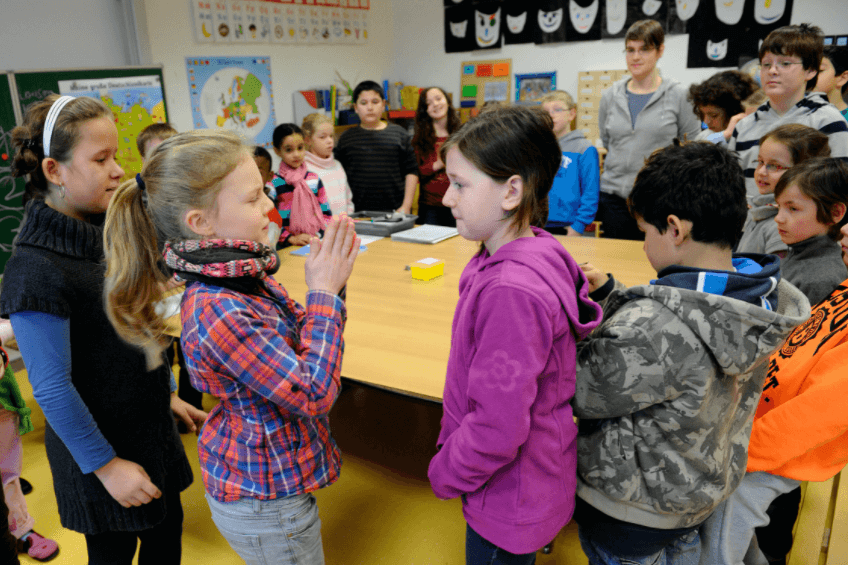Why Inclusivity is Important in the Education Sector

When you take a look at classrooms across the world, you will always see something different. There is no monolith in the classroom setting, as diversity is the key to learning, change, and acceptance. Even in classrooms in homogenous societies such as Japan, there are likely to be instructors, staff members, and students who come from afar. Beyond diversity, the education sector is extremely inclusive because everyone has so much that they can learn and benefit from by being around people who are different. You may practice a certain faith, or belong to a specific age group, but some of the best experiences in your career might stem from interacting with those who are uniquely different.
Here’s why inclusivity is one of the most important elements in the educational sector.
What Inclusivity Means When You Work in Education
The education industry is a sector wherein adaptation is one of the biggest strengths that you can have. Education professionals are expected to continue learning, even after they have earned several degrees and worked for decades. This is because, in education, you cannot remain forever unchanged. Things that you learned in years past may become obsolete. New methods of education and learning get shared and promoted in an effort to make learning easier and more effective for students. Inclusivity is the best way to ensure that everyone who wants to enter the education field gets a fair chance. No group of persons should ever feel like they are excluded from participating in education as a profession simply because of where they are from, or what they happen to believe.
Accepting Differences Brings People Together
Think back to all of the lessons that you learned about individuals and the world at large when you were a child. There is a chance that when you first went to school, you learned how very different all of your classmates were. Even when you looked at a fellow student who appeared to be similar to you on the surface, it probably wasn’t too long before you started to see what made each person an individual. For example, foreign language studies are often headed by educators who may be very different from the groups of students that they teach. When learning Spanish, you may encounter instructors from Mexico, Costa Rica, Puerto Rico, of Spain. While you are learning the Spanish language, you also become involved with the culture of its speakers. As you go on, you also learn that there are still numerous similarities between the culture that you are part of and the varied people of planet Earth.
Learning More in Inclusive Educational Spaces
Many years ago, education was a much more rigid and standard practice in the world. Students sat at their seats, never interacting with one another, while the teacher gave a prepared lesson. Today, you might show up for a class that is being held in a park. You have teacher’s aides and professional students offering support, as they learn how the classroom setting works as they continue to strive towards earning their degrees. When asking yourself, should I get a doctorate in education, consider what you will get from learning in an inclusive environment as well. The online college has greatly improved inclusivity in education. Because there are fewer barriers, it is less expensive, and scheduling is more flexible, students of all backgrounds prefer it as their main educational tool.
What the Future in Education Looks Like
There are still many groups of people in the world that do not have access to basic education. Whether it is because their family financial situation will not allow them to go to school, or there are actual laws that prevent them from seeking out education, eventually they will get their chance. As a result, you should expect to see even more cultures and backgrounds reflected in the education industry. Within primary schools, charter school organizations and private schools continue to push the envelope in terms of innovation and creativity. All sorts of people, many times, with backgrounds in other fields are entering education and making it even more inclusive.
Exploring History Together
What is education without looking at the history of the field as well as the world? In ancient Egypt, scholars wrote on paper scrolls, sending messages and sharing their culture with other excited learners from abroad. In China, an ancient writing system was developed that is still used to this day by over a billion people, thousands of years later. Exploring the history of others is a big part of the inclusivity that holds the education sector together. Events devoted to learning about everyone’s history and cultural practices also have helped with getting industry members to feel better about their own uniqueness.
Sharing Information Leads to Further Innovations
The reason that human beings have been able to advance so quickly is due to their cooperative nature. As information is shared, it can be improved upon and expanded to new depths. In an environment where people are hired for their strengths, not their differences, inclusivity becomes the bottom line. When you are exposed to people who are not like you and you work in a cooperative environment, such as the education field, there will never be a shortage in the area of innovation.
Why Being Exposed to Different Backgrounds is Helpful in the Education Sector
Imagine living in a place where everyone likes the same things. They live in the same types of homes, have identical nuclear family structures, and even wear the same clothes. If you were to exhibit even the slightest of conflicting traits, you might look and feel quite different from your peers.
On graduation day, hopeful graduates line up with their caps, gowns, and colorful cords. The cords that they wear around their neck oftentimes symbolize the various academic recognitions that they have seen, as well as their affiliation with cultural clubs. In a sea of uniformly colored caps and gowns, even during graduation ceremonies, you can see that diversity and inclusivity are embraced in education.
If you are deciding on a career in the education field, know that you will be able to be yourself, as different and unique as you are. Not only will your individuality help you in your future career, but it will also make you stand out in a most acceptable way.








